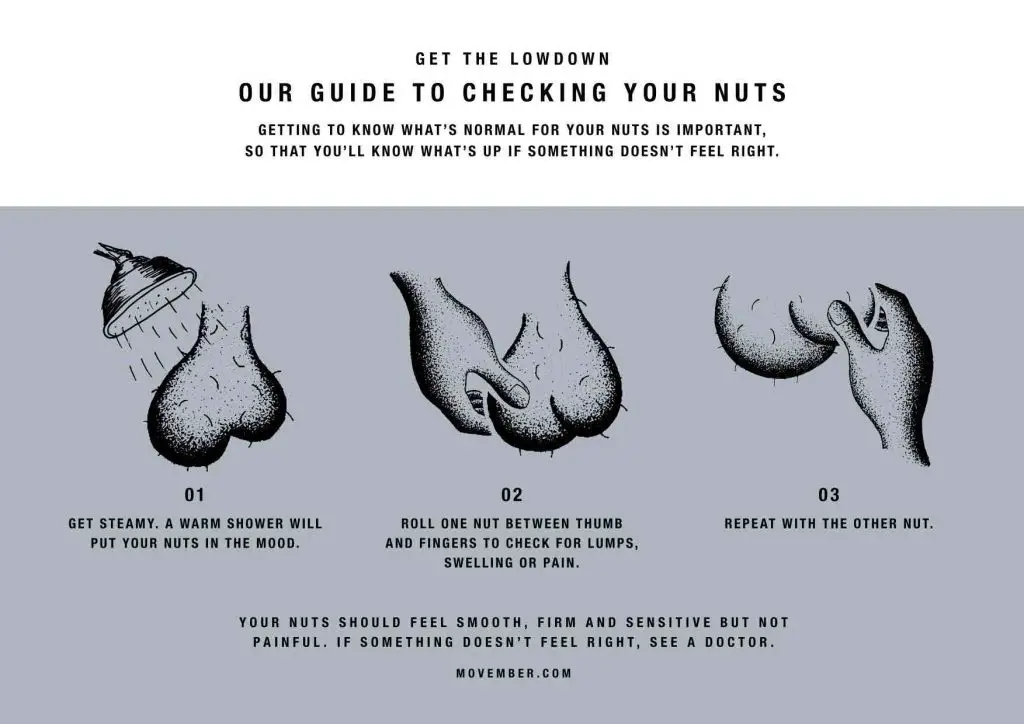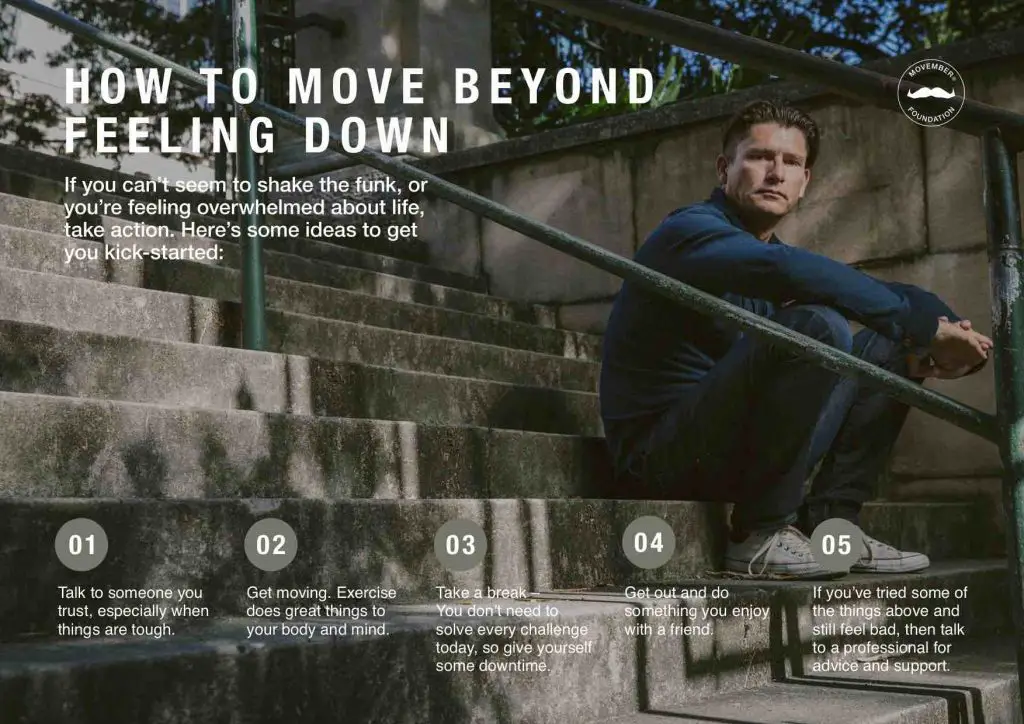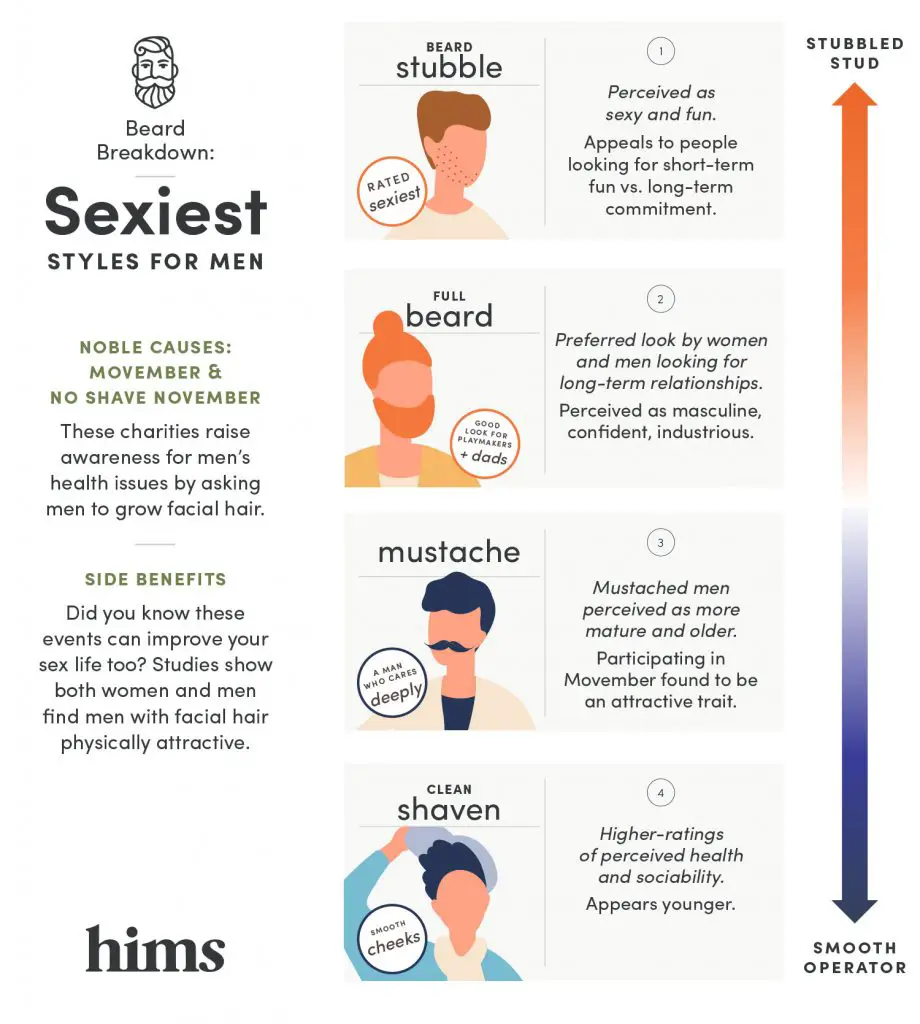Every November, millions of men around the world grow out their facial hair as part of Movember or No-Shave November. These charities help raise awareness for men’s health issues such as prostate cancer, testicular cancer, suicide, and colorectal cancer.
The goal is to get men talking and educated on these issues, as well as raising money for charity. Even if you’re not participating, there are still plenty of lessons and knowledge that you can take away from these movements.
Get your prostate checked
Did you know that 1 in 9 men in the United States will be diagnosed with prostate cancer at some point in their lifetime? For the average man, you should begin talking to your doctor about PSA testing at age 50. A PSA test is a simple blood test and the main method of screening. If you’re African American or have a father/brother with prostate cancer, you should begin having this conversation at 45.
Signs and symptoms of prostate cancer that you should be conscious of include: problems urinating (frequent, difficult, painful, weak), blood in urine/semen, difficulty gaining an erection, painful ejaculation, and frequent pain/stiffness in lower back/hips/thighs. These symptoms are common and may be attributed to a number of other factors, but you should notify your physician if they begin to occur.
Learn how to do a testicular self-exam
Testicular cancer is the most common type of cancer among young men in the United States. Despite a survival rate of 95 percent, it is still imperative to diagnose the cancer early before it spreads or more serious surgery is required. Even with the removal of one testicle, having another functioning testicle should not interfere with a man’s ability to have sex or have children.
The most proactive step that men can take is to perform a routine testicular self-exam once a month and then notify a physician if anything seems off. Considering its prevalence with young men, you can never start too early. Consult the following diagram in order to take the proper steps.
Get a colonoscopy
Colorectal cancer is the number two leading cause of cancer deaths in the United States, yet 1 in 3 adults over the age of 50 are not being screened. Since both men and women are at risk, it is recommended that everyone start consulting their physician about screening options at the age of 45. If you have a family history or medical conditions that put you at greater risk, you should start even sooner. For some, there is stigma surrounding a colonoscopy, but it is effective in both diagnosing and removing polyps. Screening is increasingly important because sometimes symptoms of colorectal cancer can go undetected in the early stages. It’s far better to face your fears than wait until it’s too late.
Talk about the issues
There is a ton of stigma surrounding men’s health issues and men don’t want to talk about it. This results in many men choosing not to go to the doctor until issues become too serious. By communicating with and educating your friends and family, everyone will be better prepared to look for warning signs, seek treatment, and help each other. For instance, nearly 70% of men have never or don’t regularly perform a testicular self-exam. Could you imagine how much early diagnosis rates would improve if men were more proactive? Spreading awareness will help save lives.
Try to talk about mental health
Perhaps no health issue is surrounded by more stigma than mental health. This is especially prevalent for men, who account for ¾ of all suicides in the United States. Much like physical men’s health issues, more awareness needs to be spread and people need to be willing to talk. Everyone wants to be there for a friend or family member, yet they are uncomfortable with discussing their own problems because they fear nobody understands their mental health issues. What’s most important is being available for conversation and trying to build trust. For help in starting a conversation, seek out mental health professional resources. When situations become more serious, you can contact the National Suicide Prevention Hotline at 1-800-273-8255. Furthermore, you should call 911 when a life is in danger.
Make time for loved ones
Perhaps the most important lesson is that we should spend more time in the company of those we love. The purpose of spreading awareness is so that men will live longer, happier, and healthier lives. Life is short, so don’t waste time fretting about the inconsequential, but create memories with the special ones around you. Go on that vacation with your best friend. Make more time for intimacy with your partner, which ironically enough, may be aided by the growth of your facial hair (see below). And if you have problems in that arena, you’re not alone either. Drop the stigma and consult your physician if you’re in need of treatment for ED.
Live a healthier lifestyle
While you should take precautions to help diagnose and stop cancers early in their tracks, you should also try to lead an overall healthier lifestyle. Eating a healthier diet and routine exercise are the true first line of defense against so many health issues. Little changes like eating more fruits and vegetables, as well as getting 30 minutes of exercise a day, can make a huge difference. Depending on circumstance, some people will need to make larger lifestyle chances. Don’t be afraid to consult a physician, nutritionist, or dietitian. These professionals are here to help you. And if you’re having trouble motivating, you’re not alone. Ask your family and friends to help you along the way.
Originally posted on November 30, 2018 @ 8:30 am






